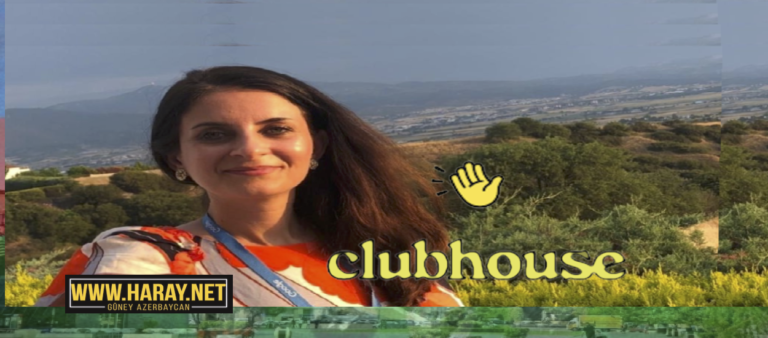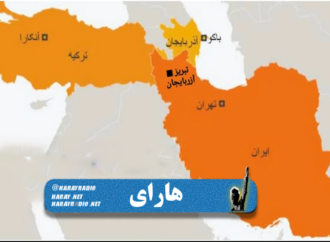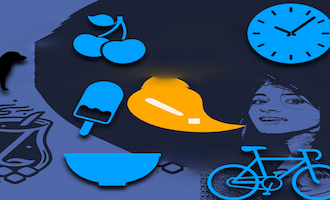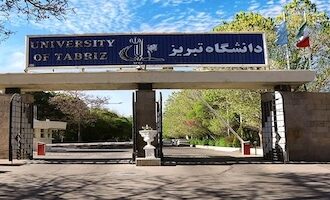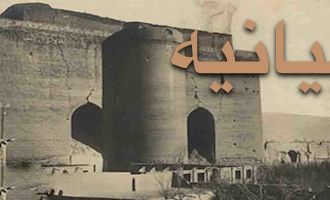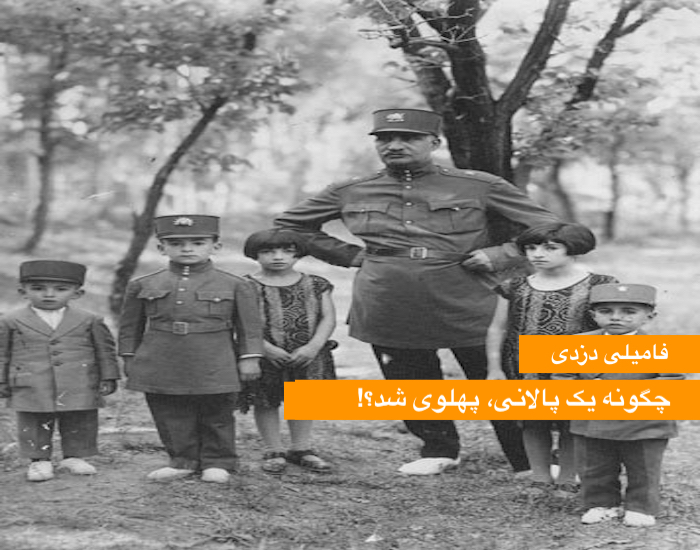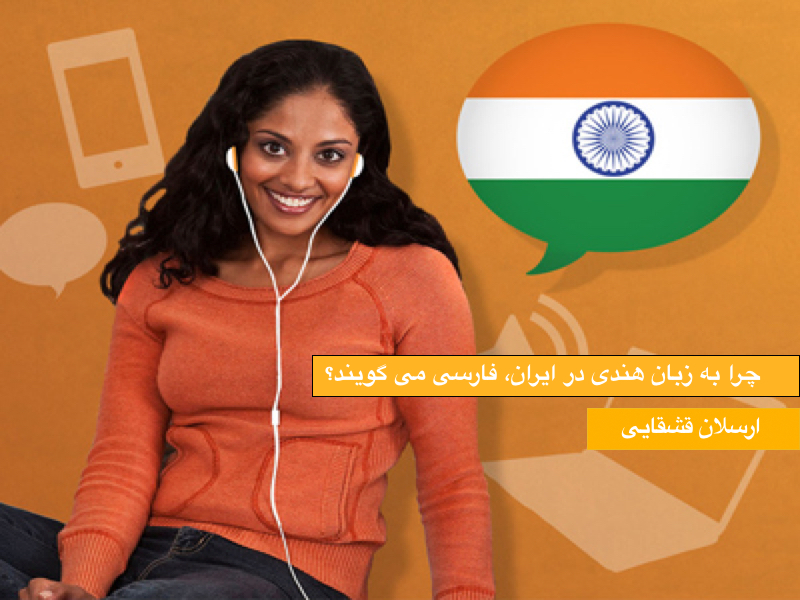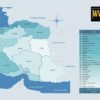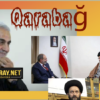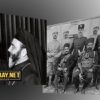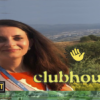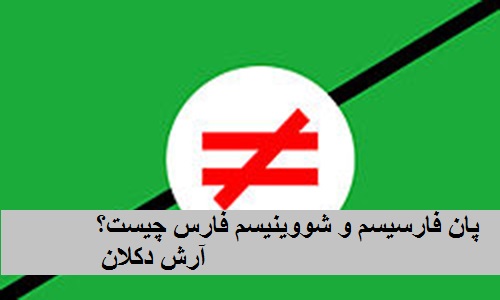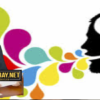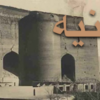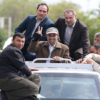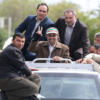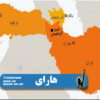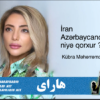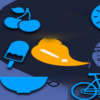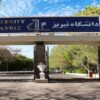- In English, خبرلر
- ژوئن 2, 2022

We are deprived of using and receiving instruction in our language and are forced to read and write in Farsi Dr. Nahid Jafari
Starting a Virtual Book Club to Learn Her Own Language Dr. Nahid Jafari
Dr. Nahid Jafari is an assistant professor at the State University of New York—Farmingdale. Last year she started an online book club – to learn her own mother tongue. In this group, other Azerbaijani-Turks from Iran like herself come together and learn how to read and write in their primary language. One might ask, how can a person not know how to read the language they first spoke at home? Remember – English, the first language of many, is a mandatory elementary, middle, and high school subject in North America
.
As an ethnic Turk growing up in Tabriz, the largest city in the Azerbaijan province of Iran, Nahid told us she suffered a lot in elementary school and has remained affected by her experience and fearful of languages. “Because the school language was different from our home language, I had difficulty at school. I did not know Farsi and was stressed because of it
.”
She says she decided to learn how to read and write in her mother language after joining chat rooms of Turks from Iranian Azerbaijan on the social network Clubhouse just one year ago. “To be honest, it never occurred to me that I needed to learn [Azerbaijani] Turkish, my mother tongue. But I always wondered why we weren’t taught our language at school as children,” she says
.
Who is Nahid Jafari? Tell Us About Yourself
.
I received my B.Sc. and M.Sc. degrees at the University of Tabriz and my Ph.D. in Statistics and Operations Research from RMIT University in Australia. I have been living in the USA since 2014, and I am currently an Assistant Professor of Supply Chain and Artificial Intelligence Management in the School of Business at the State University of New York—Farmingdale (Long Island, NY)
.
I came from a working-class family in Tabriz, a Turkish-speaking city, and the capital of the East Azerbaijan province of Iran. I went to elementary school during the 1980s Iran–Iraq War
.
Growing up in a low-income, illiterate family, speaking only Turkish and not knowing any Farsi, I was sent to school in a system where Farsi was (and still is) the only language of education. It was like being thrown into a different and unfamiliar world
.
It was huge for me as a kid. I was traumatized by our school’s Farsi-only language education. It made me feel scared and insecure. I was doing well in math and science, but Farsi’s dictation, spelling, writing, and social science subjects were difficult. For that reason, I was silent and never spoke in class. I was afraid and intimidated because we had to speak Farsi during the class activities. My teachers beat me with a wooden stick as I struggled with subjects that required language skills. At my fourth-grade level, I failed to pass a writing course, and because of this, I could not move on to the next grade. I had to repeat the fourth grade. It was a degrading and humiliating experience. It negatively affected my mental health and self-esteem as my classmates moved on to the next grade while I had to repeat the entire grade. I lost my belief in myself and my intelligence. Since then, I have always been intimidated by learning languages and have developed a kind of language phobia. I kept this fear of languages a big secret in my life. Yet, in my mid-40s, I am revealing it with tears
.
How Did you Decide to Learn to Read and Write in Azerbaijani Turkish
?
It never occurred to me that I needed to learn [Azerbaijani] Turkish, my mother tongue. But I always wondered why we were not taught our language as children when we were at school for years. I can now critically reflect on it and blame my country’s education system for preventing us from learning it. In Iran, a multilingual and multiethnic country, we have an education system where Farsi is the only language of education. We are deprived of using and receiving instruction in our language and are forced to read and write in Farsi. However, the language of our Azerbaijan province and many other regions in Iran is not Farsi.

Kids learning their ABCs in a language they don’t know is not as straightforward as it seems. It can feel like a totally different world. Image: Natalia Davidovich/Shutterstock
After all this time, I am learning my mother tongue as an adult living in the USA, thanks to my membership in a virtual book club with other ethnic [Azerbaijani] Turks from my country. Last year (2021), during the pandemic, when we were in isolation and sitting at home, I joined Clubhouse, and I saw that there were rooms in our language, and our Turk friends spoke there; I also joined them. It was exciting to speak in [Azerbaijani] Turkish using this app. Because here in the USA, I don’t know many people who speak my language. I would use Turkish only when talking with my family in Tabriz over the phone. But suddenly, I found myself among people of my ethnic group. The beauty of it was that people joined from all over the world. There were people from different cities of Azerbaijan and places where Turks live in Iran. I have never had the opportunity to have so many [Azerbaijani] Turk friends from other towns and hear different accents, e.g., Ardabil, Urmia, Zanjan, Mughan, Sulduz, etc. There were activists among them too
.
I realized some users speak Turkish in a different style. I told them: ‘the Turkish you speak is not like ours. We do not fully understand it. Why do you talk like people in Baku or Istanbul?’ There were a lot of arguments like this between us. However, they challenged us back. They said we did not speak proper Turkish. They called it an “assimilated Turkish” mixed up with Farsi. It made me think a bit. I wanted to improve my [Azerbaijani] Turkish vocabulary, communicate with my new friends, and fully express myself in the language
.
I learned from a friend about a virtual Azerbaijani Turkish class that Dr. Lale Javanshir from the University of Toronto offered in the summer of 2021. I registered in that class, and for the first time in my life, it happened that I started learning my mother tongue. It was so helpful but not enough. My level was low, and I realized that the course was ending, and I had not learned anything. I still had difficulty reading texts. I got only acquainted a little bit with the grammar and the alphabet
.
To overcome this, I thought about applying new learning methods such as “applied to learn” or “learning by doing.” I believed if I kept reading pages and pages every day, I would eventually learn it. It was going to be slow but consistent. The idea of a book club was born. I brought this idea to Lale’s class, and she loved it and encouraged me to do it. Also, some of my classmates liked this idea and agreed to continue our learning. We had a chat club called “Gündəm Danışıq,” where we had general daily conversations. We turned it into a book club
.
What Is the Book Club Like
?
We started the book club in July 2021. It is scheduled three times a week at 9:00 PM (New York time). Usually, five to ten people are on the stage to read the book, and several people join us to listen. We pick the books based on recommendations from our literature scholars, such as Dr. Lale Javanshir, Dr. Toğrul Atabay, and Ali Rıza Kuluncu
.
So far, we have read books such as “Me, You, Him and the Telephone” and “The Sixth Floor of the Five-Story Building” by Anar Rezayev, “Stories from the Village of Danabash” by Jalil Mammadguluzade, “Facing Light” by Afag Masud, “Ali and Nino” by Kurban Said, “Foggy Tabriz” by Mammed Said Ordubadi,“ Anton Chekhov’s Selected Stories” by Anton Chekhov, and “Turbulent Kura” by Ismayil Shikhli
.
One advantage of the book club is that we socialize and become good friends with Azerbaijani Turks who live in different countries such as Australia, Canada, the United States, and Azerbaijan (both the republic and in Iran). We discuss how we can encourage more of our fellow people to learn our language, share ideas about other activities or strategies to promote it and go beyond just reading books by writing, translating, and creating websites or pages on social media platforms
.
It also gave us a strong discipline in reading and beyond. We have been meeting three times a week for almost a year, and we read two or three hours per meeting. It’s a serious commitment. When our book reading time is approaching, no matter where I am, I need to return home on time and sit behind my computer to join the reading club
.
The most challenging part of the club is finding a time that works for all our members worldwide. We have two members from Iran who join us early in the morning (5 AM), and those from Australia participate in the middle of working days by interrupting their work
.
Although we have received many positive comments from people about our book club initiative, some who are unaware of our club’s purpose have not been so kind. For instance, we received comments on not being able to read fluently and being boring to listen to, and they suggested we practice before reading in the club. We responded that we were here to learn, not to perform or entertain anyone
.
Source:The Caspian Post





